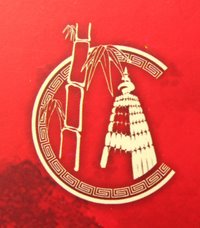Rahul Karmakar
Hindustan Times
Kolkata, October 25, 2010,page 7
People from the Indian Chinese community who were deported and harassed during the 1962 Indo-Sino war have asked the Centre for land at Deoli in Rajasthan to build a monument. Sandstone-rich Deoli is a town in Tonk district, 160 km south of Rajasthan capital Jaipur. More than 3,000 ethnic Chinese, many of them living in Assam at that time and suspected to be close to Beijing, were taken to the Deoli Internment Camp after the 1962 Sino-Indian War — but subsequently forgotten by both countries.
The Association of India Deoli Camp Internees wants the monument as “an acknowledgement of the persecution of the ethnic Chinese” 48 years ago. And as a reminder of “our loss of freedom”.
“The Indian government cannot heal the wounds of the Indian Chinese who lost their homes and kin and were forced to be scattered across the world after the 1962 war,” Assamese novelist-activist Rita Choudhury said. “It can at least honour those who lost their lives in the internment camp.
Unfortunately, Prime Minister Manmohan Singh is yet to respond to the association’s letter.
A positive gesture, added the novelist who initiated the move, would go a long way in improving India's image vis-a-vis the minorities.
Choudhury helped many Indian Chinese reconnect with their roots in India during a four-year research across continents for her novel Makam. The book is named after Makum, a small town 505 km east of Assam capital Guwahati.
Kolkata, October 25, 2010,page 7
People from the Indian Chinese community who were deported and harassed during the 1962 Indo-Sino war have asked the Centre for land at Deoli in Rajasthan to build a monument. Sandstone-rich Deoli is a town in Tonk district, 160 km south of Rajasthan capital Jaipur. More than 3,000 ethnic Chinese, many of them living in Assam at that time and suspected to be close to Beijing, were taken to the Deoli Internment Camp after the 1962 Sino-Indian War — but subsequently forgotten by both countries.
The Association of India Deoli Camp Internees wants the monument as “an acknowledgement of the persecution of the ethnic Chinese” 48 years ago. And as a reminder of “our loss of freedom”.
“The Indian government cannot heal the wounds of the Indian Chinese who lost their homes and kin and were forced to be scattered across the world after the 1962 war,” Assamese novelist-activist Rita Choudhury said. “It can at least honour those who lost their lives in the internment camp.
Unfortunately, Prime Minister Manmohan Singh is yet to respond to the association’s letter.
A positive gesture, added the novelist who initiated the move, would go a long way in improving India's image vis-a-vis the minorities.
Choudhury helped many Indian Chinese reconnect with their roots in India during a four-year research across continents for her novel Makam. The book is named after Makum, a small town 505 km east of Assam capital Guwahati.

No comments:
Post a Comment